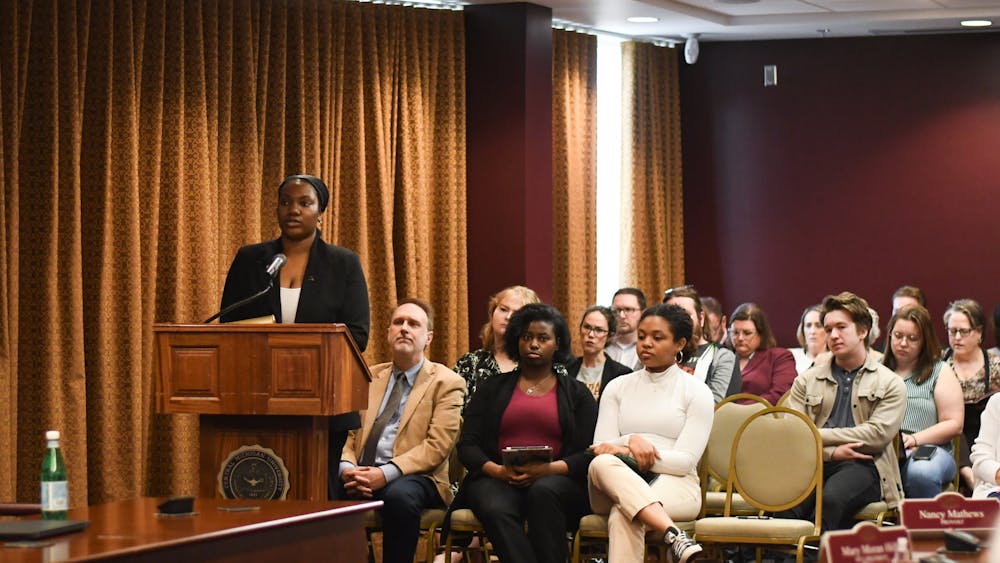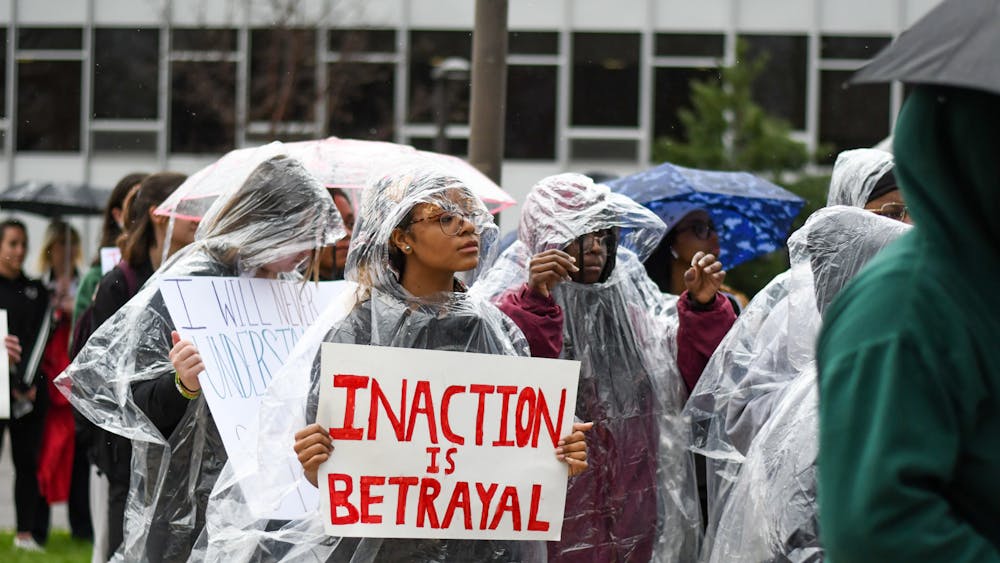1 in 4 women on campus will be sexually assaulted prior to graduation
It usually starts with the "nice guy."
He's the type of person someone is most likely to meet on campus when one meets multiple people in a short-time frame, Take Back The Night President Amanda Mclain said. He has a pleasant personality, treats you with respect and creates a false sense of safety.
According to Director of Sexual Aggression Services Stephen Thompson, 85 percent of sexual assault victims are assaulted by someone they know.
Central Michigan University Police Chief Bill Yeagley previously told Central Michigan Life that since 2008, only 12 sexual assaults have been reported on campus, and a majority of assaults go unreported.
“Pretty typically, less than 10 percent of those incidents get reported to us,” he said.
There are many reasons a victim does not report a sexual assault, Yeagley said. The victim personally knows the attacker, or the victim is worried the community or campus will recognize them. A majority of sexual assault investigations point to alcohol as a factor, he said.
“With a high percentage of these incidents, either the victim and/or the suspect consumed alcohol before these incidents occur,” he said.
Eric Lee Ramsey, 30, did not fit this model when he abducted a Grand Rapids senior outside of the Student Activity Center on Jan. 16, forcing her to drive to a residence on South Crawford Road where he bound her with tape and raped her. Yet, it has illustrated the violence inherent in sexual assault cases.
"It's awful that it took this event for people to come up and pay attention to the issue," Mclain said.
According to a recent study from the U.S. Department of Justice, one in four women will be victims of rape or attempted rape before accepting a diploma. Thompson said the same statistics apply to CMU.
"We estimate that 15 or 20 assaults occur every week," Thompson said.
The bulk of those assaults are never reported. According to the Central Michigan University police's Clery Report, only five cases of sexual assaults were reported in 2011.
"Most assault victims just aren't willing to go to the police or even speak out about it," Thompson said.
Those who do speak out about it rarely do it in a public setting. SAPA receives roughly 300 calls a year from the Mount Pleasant community, a portion of those incidents involving CMU students.
But still, Thompson says, CMU has been at the forefront in addressing the issue.
"The culture here I think is exceptional," Thompson said. "It's how we view sexual assault. Some universities just ignore the problem; because they are trying to maintain an image, they pretend it's not there. Central has addressed it head-on."
SAPA in particular has been so successful in their approach they were asked by the United States Navy to present at naval bases worldwide.
Yet, a general consensus has been found on CMU's campus that more improvement needs to be made. Megan Stowell said the improvements need to be made within popular culture.
"It takes a village to rape; it doesn't just take a single person," the Saint Clair Shores senior said.
Mclain agreed and said society accepts sexual assault out of ignorance.
"People don't know they're condoning it," Mclain said. "You're not blaming the person who raped; we're letting the people get away with the action. We're blaming the victim when we ask 'Why were you walking alone at night,' 'Why were you wearing what you were wearing?"
Mclain and Stowell are involved in Take Back The Night, an organization that works to raise awareness about sexual aggression.
Thompson says CMU has taken steps to improve safety on campus, including doubling available Safe Rides and considering adding more lighting to campus, but he acknowledges these are only superficial solutions.
"Take a look at the gun debate going on right now – we're focusing on guns, we're focusing on gun control, when we should be focusing on the person," Thompson said. "Why did he decide to go into that school, and how can we address that? It's the same thing here."
These are harder issues to address, but Take Back The Night member Kendall Samuels, a Ludington senior, said there will always be an issue of safety for women at a university, no matter how many lights the university installs.
"If you ask women,'Why are you afraid?' well, it's what we're taught as children," Samuels said. "Men don't carry keys between their fingers when they're walking through a parking lot, men don't park under a lighted space at night. We live in fear. That doesn't change until we (as a society) change"




